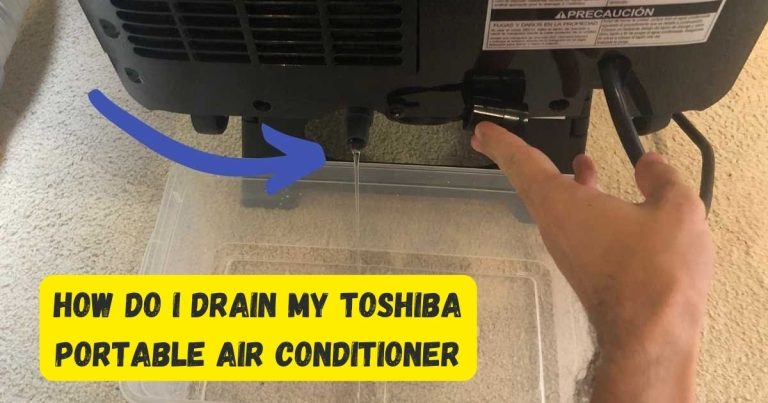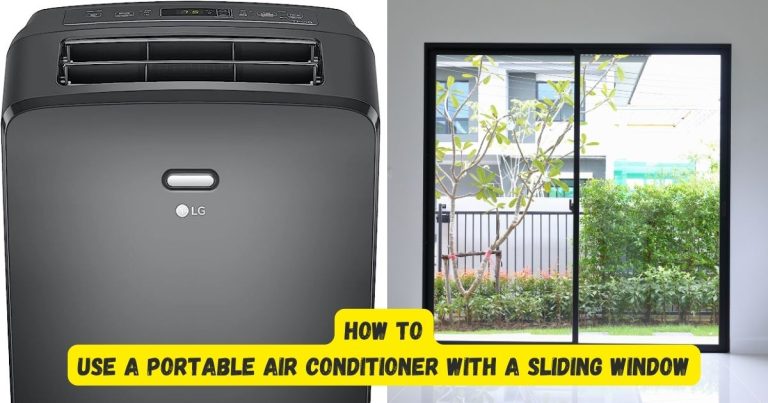Why Is My Portable Ac So Loud? Discover The Surprising Reasons Behind The Noise
Possible reasons why a portable air conditioner is loud: 1. Fan Speed: High fan speeds can create more noise. 2. Location: Placing the unit on an uneven or hard surface can amplify vibrations. 3. Maintenance: Dirty filters or a malfunctioning motor can cause excessive noise. 4. Age: Older units tend to be louder due to wear and tear. 5. Design: Some models are inherently louder than others due to their design.
Are you tired of the constant noise coming from your portable air conditioner? You’re not alone. Homeowners and renters who rely on portable AC units often face the inconvenience of excessive noise levels.
It’s frustrating when you’re trying to relax, work, or sleep, only to be bombarded by the loud whirring sound of your AC. But fear not, there are solutions to reduce the noise and restore peace and tranquility to your space.
In this comprehensive guide, we will delve into the reasons why portable ACs can be so loud and provide you with practical tips to tackle this problem head-on. Whether you have a basic understanding of air conditioning or consider yourself an expert, you’ll find valuable insights to help you address the noise issues in your own portable AC unit. We will explore the various factors that contribute to the loudness of portable air conditioners, from the design and placement of the unit to common mechanical issues that could be causing the noise.
Additionally, we will offer practical solutions to reduce the decibel levels, including simple DIY fixes and professional recommendations. By the end of this article, you’ll have a deeper understanding of why your portable AC is so loud and a range of effective strategies to make it whisper quiet. Say goodbye to the distractions and disturbances caused by your AC unit and reclaim the peace and tranquility you deserve.
Understanding the Noise Levels of Portable Air Conditioners
Portable air conditioners have revolutionized the way we cool our homes, providing a convenient and flexible cooling solution. However, along with their numerous benefits, portable AC units can often emit high levels of noise. Understanding why your portable AC is so loud requires a closer look at the factors that contribute to noise generation.
The Design and Construction of Portable Air Conditioners
The design and construction of portable air conditioners play a significant role in their noise levels. These units consist of various components, each contributing to the overall noise output. Here are some key factors to consider:
1. Compressor Noise
The compressor is an essential part of any air conditioning system, including portable AC units. It compresses and circulates refrigerant to cool the air. However, compressors tend to generate noise when they are operating.
Higher-quality portable air conditioners often come with noise-reducing technologies built into their compressors, resulting in quieter operation. When selecting a portable AC unit, consider one with a compressor specifically designed for reduced noise levels.
2. Fan Noise
The fan in a portable air conditioner helps to circulate air and expel hot air from your space. However, the fan blades and motor can generate noise during operation, especially at higher speeds.
Some portable AC units feature multiple fan speeds, allowing you to customize the airflow and noise levels. Lowering the fan speed can significantly reduce the noise without compromising on cooling performance.
3. Airflow Restrictions
Airflow restrictions within the portable AC unit can also contribute to increased noise levels. Blockages or obstructions in the air filters, vents, or exhaust hose can disrupt the smooth flow of air, leading to turbulence and noise.
To mitigate this issue, regularly clean and maintain your portable air conditioner. Keep the air filters clean and free from dust and debris, and ensure there are no obstructions in the exhaust hose or vents.
Placement and Surrounding Environment
Not only is the design of the portable air conditioner essential, but its placement and the environment in which it operates also affect the noise levels. Here are some considerations:
1. Distance from Occupied Areas
Placing your portable air conditioner far away from areas where you spend most of your time can help reduce the perceived noise levels. The farther the unit is from occupied areas, the lower the noise impact.
If possible, position the portable AC unit near a window or an external wall to minimize the amount of noise that reaches your living or working space. This distance and location can make a noticeable difference in noise levels.
2. Soundproofing
An effective strategy to reduce noise from portable air conditioners is to soundproof the surrounding area. By adding insulation or using sound-absorbing materials on the walls and ceiling, you can minimize the reverberation of noise.
Consider using curtains, acoustic foam panels, or rugs to absorb sound waves and create a more peaceful environment. This technique can be particularly beneficial for home offices, bedrooms, or any other space where quiet is essential.
3. External Noise Sources
Take into account any external noise sources that may contribute to the overall noise levels in your space. Traffic, nearby construction, or even noisy neighbors can amplify the perceived noise from your portable air conditioner.
If external noise is a concern, consider using white noise machines or fans to help drown out the unwanted sounds. These devices can create a soothing background noise that masks the louder sounds produced by your AC unit.
Common Mechanical Issues
In some cases, the loudness of your portable air conditioner can be attributed to mechanical issues or malfunctions. Here are a few common problems that may cause excessive noise:
1. Loose or Damaged Parts
A loose or damaged part within the portable AC unit can result in rattling or vibrating noises. Check for any loose screws, bolts, or panels and tighten them if necessary. If a part is damaged, consider seeking professional assistance to replace it.
2. Worn-out or Misaligned Fan Blades
Fan blades that are worn-out or misaligned can create a significant amount of noise. Inspect the fan blades and ensure they are in good condition. If they appear damaged or misaligned, contact a professional technician to repair or replace them.
3. Faulty Motor Bearings
A faulty motor bearing can cause a grinding or squealing sound in your portable air conditioner. This issue requires professional attention, as it involves disassembling the unit and replacing the faulty bearings.
Effective Strategies to Reduce Portable AC Noise
Now that we have explored the reasons behind the noise generated by portable air conditioners, let’s discuss some effective strategies to reduce the noise levels:
1. Use Noise-Canceling Devices
There are various noise-canceling devices available in the market that can help reduce the noise from your portable air conditioner. Sound blankets, noise-absorbing curtains, or acoustic panels can be strategically placed near the unit to absorb and cancel out the noise.
2. Regular Maintenance and Cleaning
As mentioned earlier, regular maintenance and cleaning are crucial for reducing noise levels in portable air conditioners. Clean or replace dirty air filters, clear any obstructions in the exhaust hose or vents, and ensure all parts are in good working condition.
3. Consider Upgrading to a Quieter Model
If your current portable air conditioner consistently produces excessive noise and you have exhausted all other options, it may be time to consider upgrading to a quieter model. Look for units with noise-reducing features, such as advanced insulation or specially designed fan blades.
Excessive noise from a portable air conditioner can be disruptive and frustrating. By understanding the factors that contribute to the noise levels and implementing the strategies mentioned in this guide, you can significantly reduce the noise and enjoy a more peaceful environment.
Portable Air Conditioners – Why you shouldn't like them
Frequently Asked Questions (FAQ)
Why is my portable AC so loud?
Can I do anything to reduce the noise of my portable AC?
Is it normal for a portable AC to be loud?
Can a noisy portable AC be fixed?
Should I replace my noisy portable AC?
Final Summary: Strategies to Reduce Noise Generated by Portable Air Conditioners
In conclusion, understanding the reasons behind the noise generated by portable air conditioners is crucial to finding effective solutions. The design and construction of these units, including the compressor and fan, play a significant role in noise generation.
Airflow restrictions within the unit can also contribute to increased noise levels. Additionally, the placement of the portable AC unit and the surrounding environment can affect noise levels.
Considering factors such as distance from occupied areas, soundproofing, and external noise sources can help reduce perceived noise. Mechanical issues, such as loose or damaged parts, worn-out or misaligned fan blades, and faulty motor bearings, can also cause excessive noise. Regular maintenance and cleaning are essential for reducing noise levels, as is considering upgrading to a quieter model if necessary.
Finally, using noise-canceling devices, such as sound blankets or acoustic panels, can help absorb and cancel out noise. By implementing these strategies, portable AC users can enjoy a more peaceful and comfortable environment.






